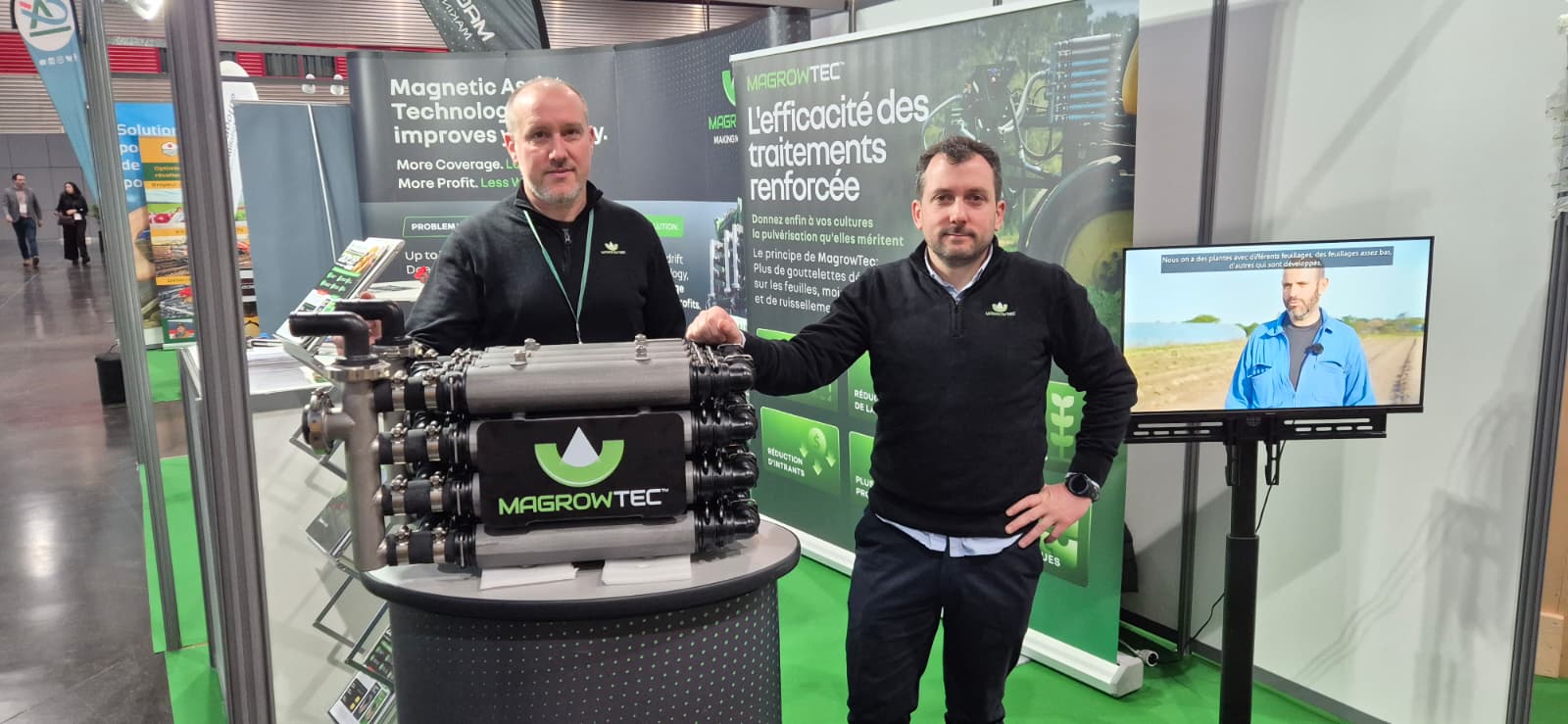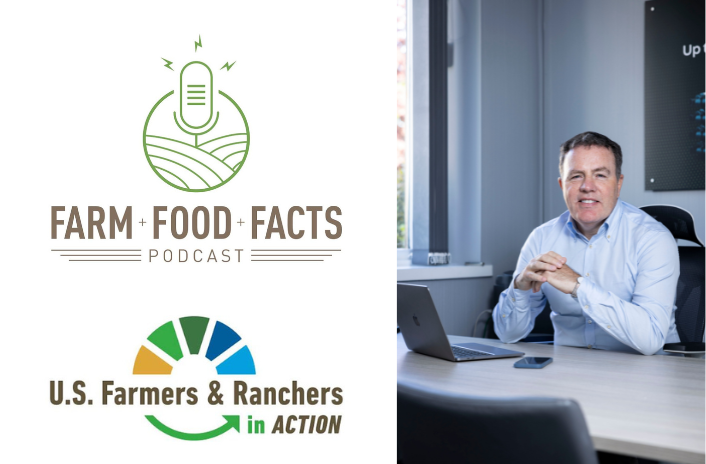The AgTech Series: An Interview with Gary Wickham of MagGrow
Challenge Advisory chats to Gary Wickham – the CEO and founding member of MagGrow, to discuss the AgTech industry, Wickham’s career challenges and highlights thus far, and what the team are currently up to at MagGrow.
Founded in 2013, MagGrow is an Irish AgTech start-up, and currently operates across three continents, North America, Europe and Africa.
MagGrow is a spraying technology that helps farmers grow more by using less. The system gives better coverage than conventional crop spraying systems. The two core benefits are 70% drift reduction and 20-40% increased coverage. Recently named as one of Successful Farming’s AgTech Start-ups to Watch in 2018, the future is bright for MagGrow.
Can you tell us a bit about your career prior to MagGrow?
Before I was the founding member and CEO of MagGrow, I started my career at Henkel Loctite in Ireland, holding several senior management positions, including the responsibility of building and operating Loctite’s first cleanroom facility for its Biomedical and Microelectronic product ranges. After receiving my MBA, I joined Reheis Pharma Ireland as the managing director with a turnover of over €40m. In 2003, I co-founded and set up Staycity apartment hotels, a highly successful international business with a turnover in excess of €70 million and over 500 employees.
Could you tell us more about MagGrow and the work you’re currently doing?
MagGrow is a patented and proprietary technology solution that uses permanent rare earth magnets as part of an integrated system for droplet formation that reduces pesticide spray drift by over 70% and increases crop spray coverage by between 20-40% depending upon the crop. In addition to these two core benefits, our customers are seeing many other benefits such as up to 50% water usage reduction, better environmental compliance, and enhanced spray windows. MagGrow performs better than conventional technology in higher wind speeds and reduced labour requirements. The system does not require a power source, has no moving parts, is easy to retrofit to tractor booms and has very low maintenance. MagGrow technology is currently offered as a retrofit kit for tractor booms for any size and is brand agnostic.
We also offer a backpack bespoke sprayer for greenhouse growers, where customers are using 50% less chemical and water. We are actively in discussions with some of the OEMs about incorporating MagGrow technology into new sprayers at the manufacturing stage. We are working with distributors to sell our products to our growing customer base in Canada, USA, Europe and South Africa and will be announcing some new dealerships this year. We have also started discussions with some strategic partners to scale our business.
How have you seen the AgTech sector change over time in Ireland?
Incredibly, a small nation like Ireland with a population of approximately 5 million people grows enough food for over 80 million people. There are ambitions to double that number but that is a very difficult challenge in the face of climate change and much higher regulatory and compliance requirements.
The solution can only be met by sustainable farming, i.e. using less scarce resources such as land and water to grow more. Innovation is the key and I am delighted to see so many stakeholders in Ireland in both the government and private sector step up and see not only the challenge but the opportunity that this brings. Ireland wants to be a leader, not only in AgTech, but also in Innovation. There are great examples of this in the private sector with companies such as Dairymaster, Glanbia, Kerry Group, McHale, Keenans (Alltech), etc. In the public sector, you have world class organisations like Teagasc and other fantastic Universities and Research Centres.
What areas of AgTech are you most passionate about?
Agriculture is facing many challenges. The world needs to grow the same amount of food in the next 40 years or so as in the last 10,000 years combined, yet places like Africa, Asia and California are using over 80% of the total available water just for agriculture alone. So the team and I at MagGrow are delighted to be part of a company that’s doing its piece to solve some of the greatest food and water challenges that this planet is ever going to face. We love what we do and are very excited about MagGrow’s potential as we develop out new applications in areas such as Irrigation, where initial studies show that we can reduce water usage by up to 37%.
In hindsight, what advice would you give to yourself five years ago when you first started the company?
Hindsight is always a wonderful thing. Yes, we have made some mistakes but less than we probably would have if I didn’t have a team with 50 years cumulative successful startup experience. The key is to know when to pivot and to act decisively. You can have a great technology but you also need a brilliant team. If I was to do one thing differently, I probably would have entered the US market quicker.
Are there any people or companies in the industry that inspire you?
Several. Bill Gates, he is such a generous man and the work he and his wife do with the Bill & Melinda Gates foundation is fantastic and a credit to them both. Richard Branson has had many bad days but picked himself up, started again and built several successful businesses and is always willing to try new things and question convention. On the investment side, you can’t beat Warren Buffett as one of the shrewdest and best brains out there.
What are the biggest challenges you have encountered in the industry?
Farmers can be slow to adopt new technology so you have to win their trust, develop your relationship with them and provide them with customer and independently verified data. That can be a long process. In addition, many farmers are struggling right now with the ever increasing costs of inputs, water and labour shortages and poor profit margins. But that’s where MagGrow fits in as MagGrow typically provides a return of investment in less than one year for farmers. We are making it cost effective to innovate and be sustainable.
What do you think has been your biggest career highlight so far?
Nothing can beat seeing the faces of farmers as they see a MagGrow demo for the first time and realise they can control drift and get better coverage, something which is a major challenge for conventional technology. We have also done some work with small farm-holders in Africa who were using 50% less chemical and water to achieve the same coverage that they have with their current conventional technology. These farmers are typically very poor so it is very gratifying to know we can help the poorest of the poor. There are over 500 million small farm-holders in the world so we see this as a major exciting project. The next stage will be to find partners to help us manufacture and scale MagGrow technology for this group in a cost efficient way.
Do you have any exciting upcoming projects?
Yes, aside from the ones already mentioned, we have a number of exciting projects in development. We have partnered with Harper Adams University in developing our new Intellectual Property, which has applications in Ag and non-Ag areas as well as conducting benchmarking activities and Industrial Research. We have established Crop Science operations in Farm491 based at the Royal Agricultural University in the UK where we are doing further semi-field work and field studies to support our third party research accreditations, customer and strategic partner studies as well as new product development support.
Finally, we are about to embark on a major research project with Professor Michael Coey and his team in Trinity College, Dublin. Professor Coey is a world expert in magnetism and magnetic materials. The work will be co-funded by AMBER (Advanced Materials and BioEngineering Research), a Science Foundation Ireland funded centre that provides partnerships between leading researchers in materials and industry.




